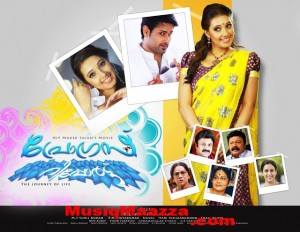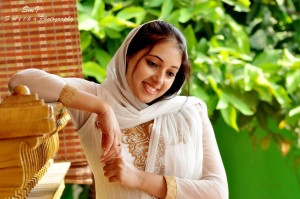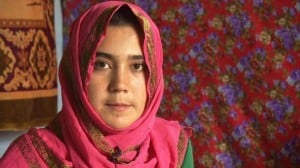Born into a family where art is a compulsion, Isha Farha started learning dance at the age of three from her mother, Kalamandalam Haseena. She is now adept in various Indian dance forms, including Bharathnatayam , Mohiniyattam, and Kuchipudi. She won the title of Kalathilakam in 2008 for excellence in the field of Bharathnatyam, Mohiniyattam, Kuchipudy, folkdance, one-act play and storytelling. She is the founder of the dance teaching institute Bharatha Bharathi.
An engineer by profession, Isha Farha, made her Malayalam movie debut last year with Progress Report. In an email interview, she speaks about her passion for dance, and how she balances her many acts, well into adulthood.

Isha Farha: My mother is Kalamandalam Haseena, a trained professional dancer and choreographer from Kerala Kalamandalam. She is my Guru and she has trained me primarily on Bharathnatayam, Mohiniyattam and Kuchipudi . I am now currently training on Kathak and other contemporary art forms. I was offered a scholarship from Center for cultural research and training (CCRT) for Bharathnatyam and Mohiniyattam. This scholarship helped me pursue my passions.
What are your upcoming projects?

You are an IT Engineer by profession and you continue to work along with doing dance and films. What do you think is the importance of formal education to an artist?
Education among artists is an often neglected topic. I believe formal education is a must. It’s absolutely wrong to think that education and studies are of no value to people from the media or entertainment industry. The independence and confidence that come with being well educated give you a strong sense of self. In an industry where it’s easy to lose yourself, I believe my education has given me a firm head above my shoulders, and the ability to say no when I have to. Though we like to believe otherwise, stardom is short-lived, and the film career span for a woman is even shorter. Education gives us a sense of security. I hope the upcoming generation gives the much required attention to studies, even when they are superbly talented artists. And I know it’s not that easy to balance both at the same time, but it’s not impossible. I believe my job is my sustenance whereas art is my passion.
How has your profession and your exposure in the Information Technology field helped your work as an artist?
I believe in giving 100% to whatever I do, and to enjoy what I do. My profession makes sure that I get to enjoy my passion and choose my roles without being under any sort of pressure of being ‘out of work’. My day job has given me confidence, independence and equipped me well to behave in a public occasion or to handle a crowd. It has developed my personality, soft skills and public speaking skills which gives me an upper edge in the movie industry.
What do learning, performing, and teaching Indian art forms mean to you?

Have you faced any criticism or opposition from Muslims in your family or otherwise for choosing to be a dancer/actress?
Unlike my mother, I haven’t faced any such situation so far in my life (touch wood). I believe people have changed with time, and most people have started respecting art forms. However when it comes to acting, I have set my own limits, in terms of costume or what kind of roles/scenes I am comfortable enacting on screen.
In my mother’s youth, however she did face opposition, also she was the only Muslim student in the whole of Kalamandalam. Her father, my grandfather, was an army man, and he was very keen to teach her art and music. So she did have familial support, which made her strong enough to overcome any other opposition she faced.
Many people find it difficult to be an Indian and a Muslim. Something as basic as wearing a bindi (ornamental dot on the forehead) is considered anti-Islamic. How do you achieve that balance? How do you make sure that your acceptance of Indian art forms is in no way affecting your faith?
It is an integral part of my faith to identity and nurture the talent God has given me. Killing your talent in the name of God is the biggest possible blasphemy. Because it means we are ignoring a boon given by the Almighty. There were and still are a lot of restrictions that Muslim women face with respect to their freedom and will to choose. Educating the girl child, and not considering her a burden who needs to be gotten rid of as soon as possible through marriage, are the only ways to bring up their status in society. India, in spite of being a democratic country, and being deemed as the next big thing, still has a long way to go in this aspect. There are many narrow minded people who do not want to grow with the times and criticizes others for doing so. If we are born into such a family or society, then it becomes near to impossible to pursue our passion or come forward in the entertainment field. Insha Allah, I have hope, I can see that the conditions are slowly improving for Indian Muslim girls. Let’s hope this mentality will change completely.
Who do you consider your competition, both in dance/movies? How do you make sure you stay ahead of your competition?
I try not to compare myself with anyone else. I believe in being original. Most people I meet in the film or dance field are unique in their own way. They are very strong willed people, and there is no room for any sort of weakness in this highly competitive field. However, I consider Shobana my idol and source of inspiration both as an actress and dancer.
As Harsha Boghle says “In course of time, once you go beyond a certain level, ability or talent is the most useless virtue to possess.” Because if you consider the lead actors or dancers, they all have the same level of talent. The difference lies in the passion, attitude, work ethics, and the honesty that you invest to hone your talent.
Could you please tell us more about your teaching venture, Bharatha Bharathi?
I started teaching dance at the age of 10. Bharatha Bharathi is my dream initiative to nurture talent. I spend my weekends and any time off to teach dance for under privileged kids who need support to pursue their dreams. As the name indicates, Bha – Bhavam (Emote), Ra – Raagam (passion), Tha = Thaalam (tune), and Bharathi is derived from the word Bharath, which means India.
You are a part of multiple NGOs and social initiatives. Could you please tell us more about it, and how you were introduced to it?
When I was in college, I got an opportunity to closely work with the social workers of Gaya. That was my first experience with social work. Gaya focuses mainly on HIV, conducting awareness classes especially at the rural areas. Entertaining elderly people or children in homes gives me immense personal pleasure. One of the other social causes I am dead against is ragging of new joiners in educational institutions. I have led numerous anti-ragging rallies and awareness programs against the practice.
Which is favorite dance form out of the lot you practice and why?
My favorite dance form is Bharathnatyam, as its filled with both Lasya (happiness) and Thandava (vigorous dance depicting violence). Bharathanatyam gives you a strong base from which all other art forms can be easily learnt.
What is your advice to young Muslim girls who want to be introduced to dance, but worry it’s against Islam?
Learning dance or being a dancer is not against Islam. Talent should never be suppressed in the name of religion, or because we have been born in a particular country. All talent, including dance and music, are God’s gift to us. You have been divinely chosen to be blessed with the gift, which needs to be respected and honed well. There are multiple art forms that were evolved by Muslims during Mughal Era like that of Kathak and Ghazals. So dance is not alien to Islam. I consider myself a believer in God, and Dance is like Upasana (way to be closer to God) to me.
Isha Farha can be found on her official Facebook page here.











